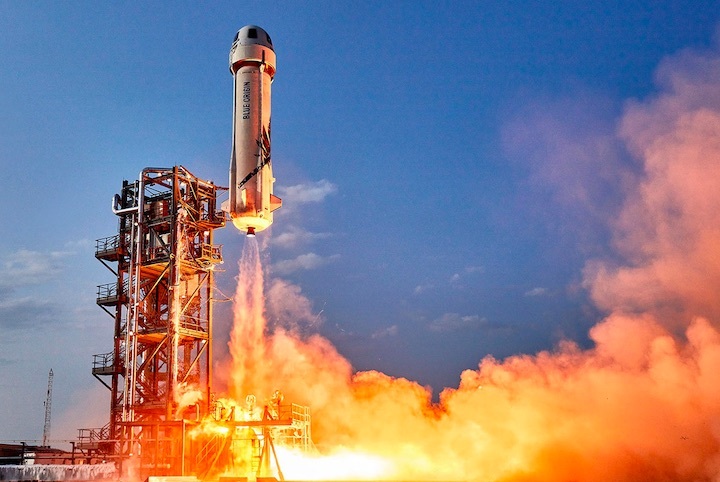16.03.2023

Jeff Bezos' Blue Origin expects to return its New Shepard rocket to flight by the end of 2023 after the vehicle suffered a mid-flight failure in September, a company sales executive said on Wednesday.
"We are looking to get back into flight with New Shepard by the end of this year," Ariane Cornell, vice president of commercial and international sales, said at a conference in Washington.
The company has provided few details on an investigation into why its 59-foot-tall (18-meter-tall) New Shepard rocket aborted a research capsule roughly one minute after lifting off in Texas in September. No humans were aboard the rocket.
The mishap paused Blue Origin's only active rocket at the center of its space tourism and microgravity research business. For those missions, New Shepard launches a capsule to the edge of space to float in microgravity for roughly five minutes before making a parachute-assisted return landing.
New Shepard has flown several crews of paying tourists and company-sponsored guests to the edge of space, including Blue Origin's billionaire founder Jeff Bezos on the rocket's inaugural flight in 2021.
The company expected to complete a "technical review" of the New Shepard failure by December last year, a Blue Origin executive told the Washington Post in November, but it is unclear if that review has been completed. Cornell declined to provide details on where the investigation stands.
The U.S. Federal Aviation administration, which regulates commercial launch site safety, is overseeing Blue Origin's investigation and must approve of its findings.
"Because we're doing this in coordination with the FAA, I can't get into those details," Cornell said when asked about investigation delays. "I'm not sure if we're gonna release the details. It's something that we have to coordinate with the FAA."
"The FAA does not prohibit commercial space operators from publicly discussing information about open mishap investigations," said FAA spokesman Steve Kulm in response to a Reuters inquiry.
